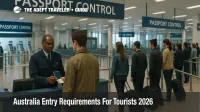Travel Visa
Obtaining a travel visa is a crucial part of planning an international trip, as it can make or break your travel experience. Visas are official documents issued by a country's government that grant permission for a foreigner to enter, stay, or transit through their territory. These documents are vital, as they help maintain national security, manage immigration, and ensure travelers meet specific criteria before entering a country.
Types of Travel Visas
Travel visas come in various forms, each tailored to meet specific travel purposes. The most common types are tourist visas, business visas, student visas, and work visas.
A tourist visa is typically required for those who intend to visit a country for leisure or recreational purposes. These visas often have conditions such as a limited stay duration, and they usually do not permit any form of paid employment.
A Business visa, on the other hand, are designed for travelers who need to conduct business transactions, attend meetings, or participate in conferences. Although these visas allow some professional activities, engaging in long-term work for local companies is generally prohibited.
Student visas are granted to individuals who wish to enroll in educational institutions abroad. These visas often allow the holder to stay for the duration of their educational program and may include provisions for working part-time during the study period.
Work visas are meant for those who have secured employment in a foreign country. These visas often require sponsorship from the employing company and involve detailed background checks and compliance with local labor laws.
The Application Process
Acquiring a travel visa involves several steps, each of which demands careful attention to detail. The process usually starts with filling out an application form provided by the consulate or embassy of the destination country. Alongside the application form, specific documents are required, including a valid passport, recent photographs, proof of financial stability, travel itinerary, and a letter of invitation, if applicable.
After submitting the necessary documents, applicants often have to attend an interview at the consulate or embassy. The interview process is designed to assess the genuineness of the travel purpose and verify the applicant’s background. Questions may include details about the trip, financial situation, and personal background.
Processing times for visa applications can range from a few days to several months, depending on the country’s regulations and the type of visa. It is advisable to start the application process well in advance of the planned travel date to avoid any potential delays.
Visa Fees and Validity
Visa fees can vary significantly based on the type of visa, the destination country, and the applicant’s nationality. Some countries offer visa fee waivers or reductions for specific categories of travelers, like students or participants attending certain cultural events. The payment of visa fees typically occurs during the application process, and it is usually non-refundable, even if the visa is denied.
The validity of a visa can range from a few days to several years and can include single or multiple entries. Single-entry visas allow travelers to enter the country only once, after which the visa becomes invalid. Multiple-entry visas, however, enable the holder to depart and re-enter the country multiple times within the visa's validity period.
Visa Waiver Programs
Several countries have established visa waiver programs to facilitate smoother travel for certain nationalities. Under these programs, travelers from participating countries are allowed to enter the host country for short stays without obtaining a visa in advance. This streamlines travel and promotes tourism and business exchanges.
However, travelers should familiarize themselves with the specific conditions of visa waiver programs, which might include restrictions on the duration of stay and activities permitted during the visit. Overstaying or violating the terms of entry can lead to fines, deportation, and future bans on entry.
Extending or Renewing Visas
Travelers who wish to extend their stay beyond the period allowed by their visa must apply for a visa extension. This process usually involves submitting a new application, providing updated documents, and paying additional fees. Some countries are stringent about extending visas, while others may offer more flexibility, especially in the case of unforeseen circumstances like medical emergencies or flight cancellations.
Renewing a visa typically applies to longer-term visas, like student or work visas, which are nearing expiration. The renewal process often mirrors the initial application procedure but may require additional documentation proving ongoing eligibility, such as continued enrollment in an educational institution for students or an ongoing employment contract for workers.
Refusals and Appeals
Visa applications may be denied for various reasons, including insufficient documentation, failure to meet specific visa requirements, or concerns over the applicant’s intention to return to their home country. In the event of a refusal, applicants usually receive an explanation and may be given the option to appeal the decision.
The appeal process can include submitting additional documents, providing clarifications, or attending another interview. It is advisable to thoroughly understand the reasons for the refusal and address them comprehensively during the appeal.
Impact of Visa Regulations on Travel
Visa regulations have a significant impact on global travel, influencing travelers’ choices of destinations based on the ease of obtaining a visa. Countries with stringent visa requirements may see fewer tourists and business visitors, whereas those with more relaxed policies often witness a higher influx of international travelers.
Governments frequently review and adjust their visa policies to align with national interests, security considerations, and international relations. Changes in visa policies can lead to shifts in travel trends and impact sectors like tourism, education, and international business.
Understanding the intricacies of travel visas is essential for anyone planning to travel internationally. From selecting the appropriate visa type and meticulously following the application process to respecting visa conditions and preparing for potential issues, careful planning can lead to a smoother and more enjoyable travel experience. Always stay informed about current visa regulations and requirements for your intended destination to ensure a successful trip.
Armenia Visa Exemption For Residents Through July 1

ESTA Social Media Data US, Senators Push Back

China Visa Free Entry for Canada, UK Travelers 2026

UK ETA Enforcement Feb 25, 2026, Denied Boarding Risk

Canada Advisory: US Entry Limits, 30 Day Rule

U.S. Immigrant Visa Pause, 75 Countries, Starts Jan 21

UK ETA Enforcement Feb 2026, Avoid Denied Boarding

UK ETA London Transit Requirements, February 25, 2026
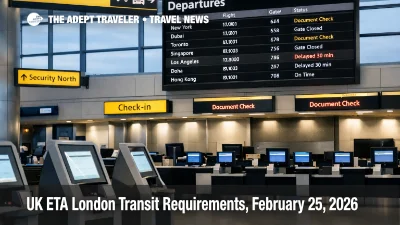
UK ETA Requirement For US Visitors Starts February 25, 2026
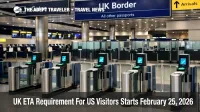
US Visa Bond Expansion Starts Jan 21, New Countries Listed
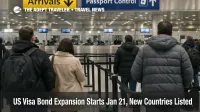
US Visitor Visa Bonds Expand, Entry Airports Limited
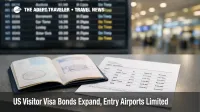
Mali Burkina Faso Entry Ban for U.S. Citizens
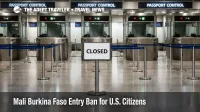
Gabon Visa Suspension Blocks US Citizen Entry
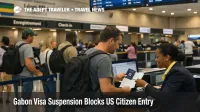
U.S. Entry Restrictions Jan 2026: Country List, Visas
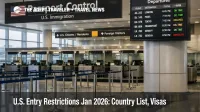
Southern Thailand Floods Travel Update, Overstay Waiver
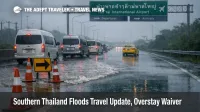
Social Media Handles in U.S. ESTA Proposal
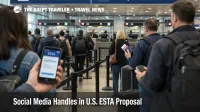
U.S. Travel Ban Expansion Starts January 1, 2026
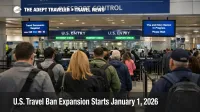
Bolivia Visa Free Entry For US And Israeli Tourists
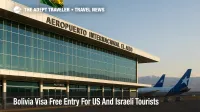
Asia Advisories And UAE Visit Visa Extensions
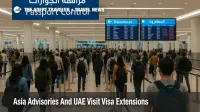
Hainan Tourism Rules Expand Visa Free Entry, Duty Free
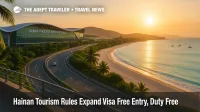
Cyprus Schengen Entry 2026 To End Long Stay Resets
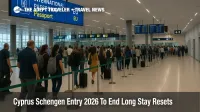
Australia Visa Systems Outage November 28 To 29
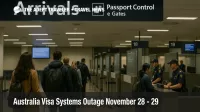
Israel Entry Requirements For Tourists In 2026
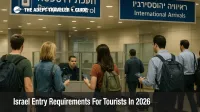
Australia Entry Requirements For Tourists 2025 2026
